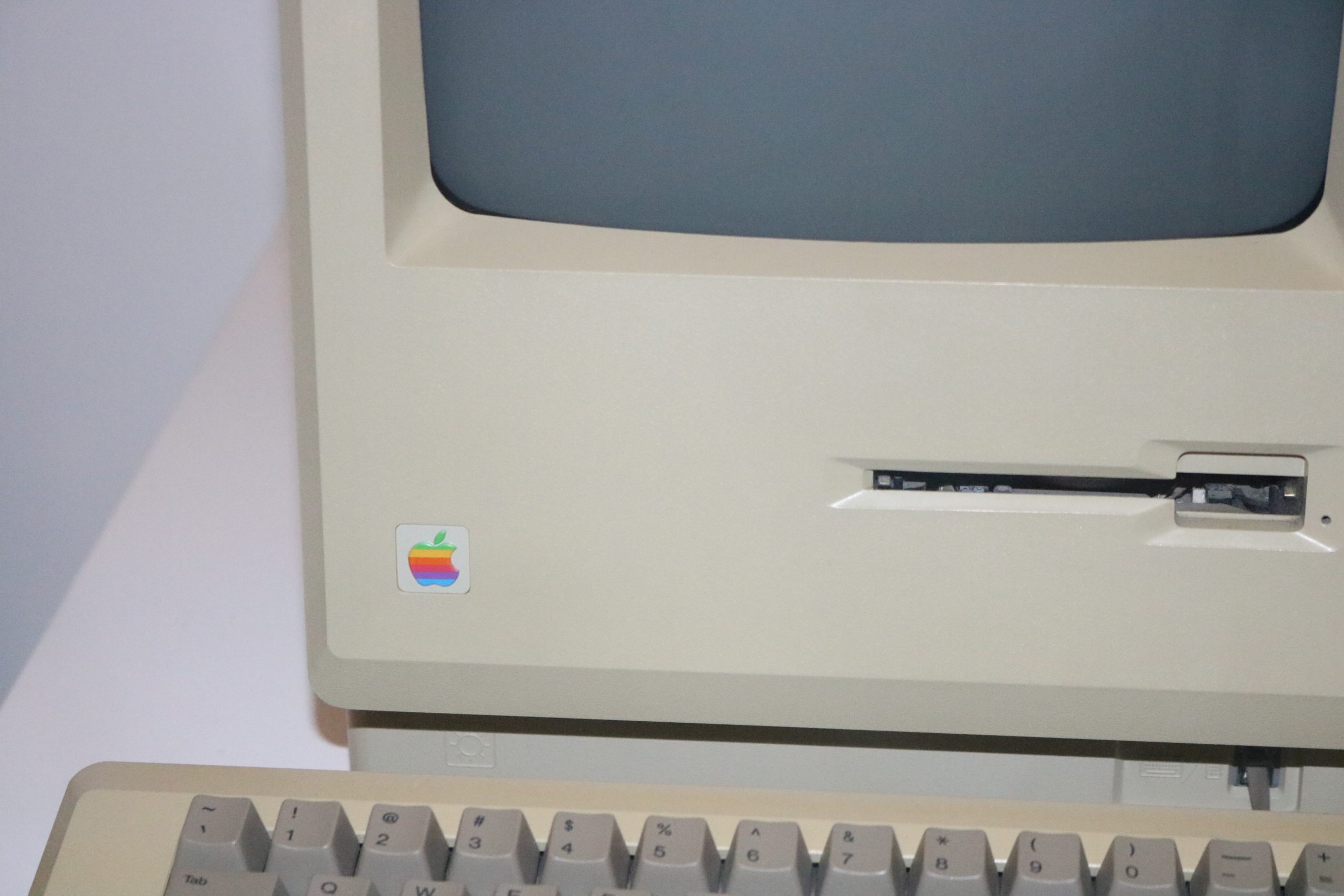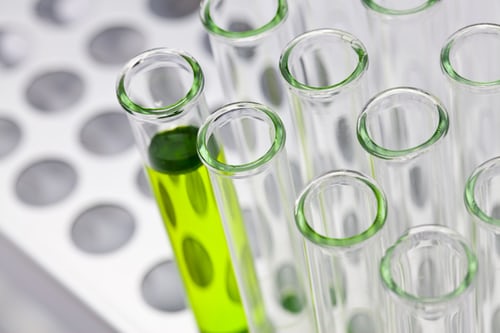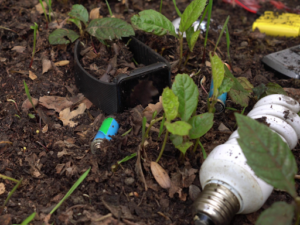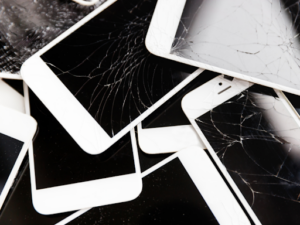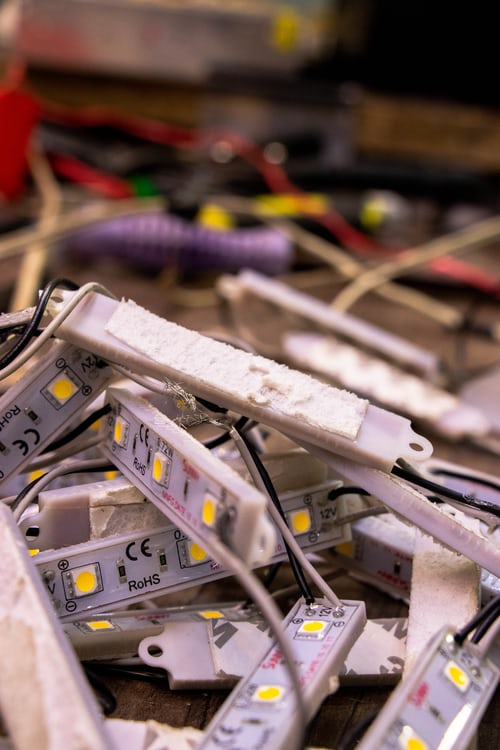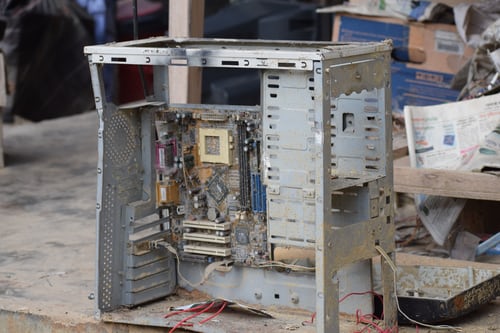10 Ways to Make Your Office More Eco-Friendly
Many of us have been making efforts in our personal lives to be more environmentally friendly. Making these changes can require some work, but are more than worth it. However, many of us forget to keep making these efforts one we walk into the office. A lot of what we do in this office is far from eco-friendly and we often don’t even realize it. Making a large space like an office filled with sometimes hundreds of people can be a huge challenge, but it’s something we all need to start doing.
Here are ten ways you can help create a more eco-friendly office.
1. Build a Sustainability Team
Before you start making your office more eco-friendly, you need people who will create and implement these changes. To make sure you have the right people involved who will keep this process organized, create a sustainability team. Your office’s sustainability team can come up with ideas and introduce them to the rest of the company. This ensures that everything is being done in a timely manner and all of your efforts can easily be tracked.
2. Invest in Eco-Friendly Appliances
Office spaces are filled with appliances that can be harmful to the environment. When you’re at home, you might opt for eco-friendly choices like opening the windows on a sunny day rather than turning on the lights, but things like this aren’t possible in an office. You can’t do anything about the fact that you need office lights turned on for hours every day, but you can make better choices about what you buy, like energy-efficient light bulbs. Many everyday office appliances have eco-friendly versions available that are a more responsible option to buy. Sonya Schwartz with Her Norm has made numerous small swap outs to be more eco-friendly and noticed that the small changes really started to add up. "No matter how big or small, all our efforts to help take care of the environment can contribute to improving sustainability."
3. Start Recycling
If your office isn’t already recycling, it’s time to get started. Recycling is one of the simplest things your office can do to become greener. Even small offices create a large amount of waste, so it’s important to recycle as many things as possible. You might also use this time to educate your employees on what exactly they’re able to recycle depending on your location. You might have single-use items that you use all the time that you aren’t aware can be recycled. Look into every option when it comes to recycling, even computers and other electronics need to be recycled properly.
4. Buy Reusable Products
Single-use products are a huge waste, especially considering that many of them can be bought in a reusable form. If you have plastic cups or water bottles in the office, get rid of them, and encourage employees to bring in their own reusable water bottle. This goes for everything you might use, like utensils, muds, and straws. Make sure dish soap is available so that everyone can keep their items clean. You can even buy branded items for your employees to encourage them to use them more often.
5. Decorate With Office Plants
Offices often struggle with poor air quality. Bringing plants into the office can help improve the air while also making you feel a little greener. There are many plants that you can buy that grow perfectly fine in an office setting and can help filter the air. This doesn’t just make your office look great, but having a plant to take care of and enjoy can do a little to improve people’s moods during the day.
Victoria Stratton with Health Labs told us that this was one simple and easy way to make the office more green what has the added bonus of making your office more stylish. "Decorate! We've added plants in every office, like Peace Lilies, to clean the air and reduce carbon emissions. Plus it looks great!"
6. Set Lights to a Timer
We all forget to turn the lights off when we leave a room. At home, this might not seem like a huge issue if it’s only one light, but in an office, it can be dozens. Turning off the lights before leaving is easy to forget, which is why you should start setting them to a timer. You might not be able to do this where everyone sits, as it may shut the lights off when you’re hard at work, but other spaces can benefit greatly from it. Areas like the kitchen, bathroom, and hallways don’t get used constantly all day long, but their lights are probably still on. This can help you save a lot of energy that you might not know is being wasted.
7. Make An Effort to Use Less Paper
It can be difficult to break old habits, but in many workspaces, there isn’t much need for paper anymore. Much of what we once needed paper for can now all be done on the computer, so you can cut back on a lot of the paper you normally need. Of course, you can recycle used paper, but if you can avoid using things you don’t need to begin with, that’s even better yet. Even small things like writing in notepads are something you can switch to using an electronic device for.
Yulia Vinokurova with Chanty told us just how simple cutting back on or cutting out paper completely from your office can be. "One of the best ways to make your office eco-friendly is to go completely paperless. We don’t have anything on paper in the office now and we opted to receive all of our bills through email. When we do need to write something down, we use a whiteboard."
8. Encourage Carpools
Chances are, many of your employees drive to work. If you’re lucky, your drive might be 10-15 minutes, but many people drive over a half hour both ways to work. Motor vehicles are a huge cause of pollution, and it might seem unavoidable when you have to get to work, but you can still cut back on the negative impact you have. Many of the people you work with are probably from the same neighborhoods and can take turns carpooling to work to reduce the number of cars on the road. You can put up a sign-up sheet for people who are interested in participating so they can find people who live near them to team up with. This isn’t only great for the environment, but people can also save on gas money.
9. Start-Eco Friendly Challenges
A great way to get everyone excited about getting eco-friendly is to start challenges in the office. Awards work well to help incentivize this process. You can give people the chance to win things like gift cards or time off when they make efforts to help make the office more eco-friendly. This gives people a way to enjoy being more environmentally friendly and gives them something to enjoy.
10. Use Renewable Energy
One goal that you might set for the future is to switch your office to a renewable energy source, if possible. This can be an initially expensive and time-consuming switch, so make this a long-term goal for your company. This is one of the biggest things for an office to do to become eco-friendly and it isn’t always easy, but it’s something great to consider for businesses that are able to do so.
How to Recycle Batteries
Newtech Recycling is always on a mission to make the world a better place to live through our environmentally sound recycling techniques. You have likely heard the story before: too many people take the easy way out and throw away their batteries and other electronic waste with the rest of the trash. The e-waste ultimately makes its way to a landfill, where harmful metals such as lead and nickel can leach into the soil and poison the environment.
That reality is why we take electronic disposal so seriously at Newtech Recycling. We do everything we can to recycle the right way in New Jersey and the surrounding Tri-state area where we operate, but it falls upon everyone to do their part, as well.
In the case of battery recycling, we realize you may have questions about which kinds are fine to throw away and which should be recycled because of the harm they pose to the environment. In this guide, we will detail some different types of batteries and how you can recycle the harmful ones with Newtech Recycling. Being informed about this process can help you to be responsible when it comes to your own e-waste disposal.
What Types of Batteries to Recycle
It may surprise you to learn that not all batteries need to be recycled with a company such as Newtech Recycling. Let’s learn about some of the differences.
Single-Use Batteries
In the world of e-waste recycling, modern, single-use alkaline batteries are considered to be the good guys. These are the batteries found in your flashlights and television remotes. They include AA, AAA, and 9-volt batteries. The reason these types of batteries are safe to throw out is because of the materials that compose them. The U.S. federal government has deemed their components of steel, zinc, manganese, potassium, and graphite to be acceptable for traditional disposal in the garbage; only California has banned the disposal of all types of batteries.
Rechargeable Batteries
Rechargeable batteries, meanwhile--such as those found in laptops, power tools, and cell phones--should be recycled rather than thrown in the trash. That’s because they could contain hazardous metals such as lead, nickel, cadmium, and lithium. If those metals got into the soil of a landfill, they could eventually infect everything from groundwater to plant and animal life. You must recycle these batteries, then, but how?
In a case such as that, give Newtech Recycling a call. We have a recycling process that allows us to work efficiently at this. Our large-scale electronic recycling plan may first require us to pick up your rechargeable batteries if you have a large volume of them, such as if you are cleaning out a corporate office. Then, at our recycling plant, we break apart the batteries into hazardous and non-hazardous materials. We are able to take the dangerous metals and add them back into the manufacturing industry, where they can be of use once again. This is a great way of keeping harmful materials out of the environment.
Button Batteries
We then come to button batteries, which you can find in watches, some toys, electronic greeting cards, and more. These buttons may be made of simple alkaline materials, just like AA batteries are. In that case, button batteries can be thrown away. However, if the button batteries contain lithium, silver, or mercury, they are obviously considered hazardous and should be either recycled or returned to the manufacturer for proper disposal.
Responsible E-Waste Recycling for Your Batteries
You can see from the above list that, while some batteries are fine to toss out in the trash, others contain dangerous metals and must be disposed of with all the proper care. In New Jersey, New York, Pennsylvania, and Connecticut, Newtech Recycling works hard every day to practice safe and responsible electronic recycling for our customers and the environment. Whether it’s computer recycling, hard drive destruction, or recycling your rechargeable batteries, Newtech can help. E-waste recycling is an issue that is important not just to us, but to the world in general.
If you find yourself wondering how to recycle your batteries, or whether your batteries are hazardous at all, call Newtech Recycling. We are happy to recycle any of your old electronics and dispose of them in safe, legal, sustainable ways. Contact us today to learn more.
Why the U.S. is Terrible at Recycling Electronics
We’re all accustomed to the amount of technology we rely on day to day, so you might not even think about it. Most of us are constantly surrounded by technology and go through electronics fairly quickly. E-waste is a major problem that will have lasting effects on our environment and millions of tons of it are produced each year. Not only does this e-waste leak toxic chemicals into the soil and water, but it’s also a huge waste of resources. Much of this damage has already been done, but we can help prevent it from getting worse.
One concern that can make it harder to prevent more e-waste from ending up in landfills is the amount of e-waste the U.S. has. A large amount of e-waste that gets put in landfills comes from the U.S., although we know the risks associated with this. This is a global issue, as the effects on our environment spread and impact us all. So, if e-waste is so harmful, why isn’t the U.S. falling behind when it comes to recycling electronics?
Lack of Education
Many of us receive basic information about recycling as we grow up. Everyone understands the importance of recycling materials like plastic and glass, even if they don’t do it. However, many don’t know why electronics need to be recycled or where to do so. Recycling electronics isn’t as simple as putting it in your recycling bin and waiting for it to be picked up. If someone isn’t familiar with e-waste, they may not even realize that there’s an issue with lumping it in with their regular garbage. Some might not question what happens to their electronics when they throw them away and if e-waste recycling is big in your area, you might not even be aware that it’s an option. Ultimately it comes down to the consumers of these products to educate themselves on the dos and don’ts of recycling tech. Jessica Rose with Copper H2O reiterated this in stating that “At the end of the day, recycling issues largely rest at the feet of US consumers. For the US to become better at recycling, consumers must become more conscious about recycling.”
It’s Legal in Many States
The damaging effects of e-waste have already been proven, but there is no federal law that requires Americans to properly recycle electronics. Despite knowing the detrimental impact that electronics can have on our environment, it’s still legal in many states to throw them away. Of course, properly recycling electronics is still an option for these states, but it’s up to the individual to do it. Even in states where recycling electronics is mandatory, you have to go out of your way to recycle it. If a state doesn’t legally require that you take these extra steps to safely recycle e-waste, people can easily toss it in with their regular trash.
Recycling Programs, in General, are Lacking
The U.S. needing major improvements on how we recycle electronics may not come as a big surprise if you already know that our regular recycling programs aren’t always top-notch. Overall, we can do better at making an effort to recycle in our lives. Compared to other countries, the U.S. still has some improvements to make when it comes to how much we recycle. Recycling items like paper and plastic is easier for many than it is to recycle electronics, and if we struggle with basic recycling already, it’s understandable that recycling electronics can be even more difficult.
Electronics Recycling Made Easy
As the owner of multiple electronics, you have a huge responsibility to recycle them properly. As we go through electronics at a more rapid rate, e-waste recycling programs are more important than ever and all Americans need to make the effort to recycle their devices. At Newtech Recycling, we know the grave effects of e-waste and want to see that everyone is taking steps to reduce the amount that ends up in our landfills. Because of this, we aim to make recycling electronics as easy as possible. Whether it’s your old household devices or an entire office space that needs to be cleared out, Newtech is here to help. We ensure that all electronics are taken care of correctly and safely.
Robert Johnson with SAWINERY told us that the biggest issue he sees is consumers failing to properly recycle their electronics and causing contamination. “What adds to the burden of recycling is the failure to segregate properly, which leads to contamination, making it difficult for recycling manufacturers to manage and process these materials.” When you choose to use a recycling company for your e-waste it takes all the guess work out of it. They will handle separating and recycling your tech the correct way so you don’t have to!
Our e-waste problem won’t resolve itself and it’s time for each of us to start taking action. Learn more about how you can help reduce the amount of e-waste we create and how Newtech can help by contacting us today.
How to Protect Your Data Before You Get Rid of Your Computer

In an age where digital technology dominates our daily lives, the disposal of electronic devices such as computers has become a critical concern. Not only does it pose significant environmental challenges, but the risk of personal data falling into the wrong hands is a pressing issue for many. At NewTech Recycling, we specialize in recycling computers and ensuring their disposal in an environmentally friendly and secure manner. Our commitment to data protection and sustainability makes us leaders in the computer disposal services industry. This guide will walk you through the steps to protect your data before recycling your computer, ensuring peace of mind and safeguarding the planet.
Understanding the Risks
Before diving into the specifics of data protection, it's essential to understand the risks associated with improper computer disposal. Discarded devices can become treasure troves for data thieves, leading to potential identity theft and financial fraud. Additionally, electronic waste poses a significant environmental hazard, releasing toxic substances into the ecosystem. Recognizing these risks underscores the importance of choosing secure and responsible computer disposal services.
Preparing Your Computer for Recycling
Backup Your Data: The first step in preparing your computer for recycling is to ensure that all your personal and important data is safely backed up. Use an external hard drive, cloud storage, or both to secure your files, photos, and other valuable information. This process guarantees that you won't lose anything important during the recycling process.
Deauthorize Your Computer: Many programs and services limit the number of devices you can use simultaneously. Before recycling your computer, ensure to deauthorize it from these services to avoid unnecessary hassles with subscription services or software licenses in the future.
Erasing Your Data Securely
Factory Reset: If your computer is still in functional condition, performing a factory reset is a straightforward way to erase your data. This option restores the device to its original state, wiping out all personal information. However, remember that some data recovery tools might retrieve data even after a reset, so consider additional steps if your device contains sensitive information.
Using Data Destruction Software: For an extra layer of security, use data destruction software designed to erase data beyond recovery. These programs overwrite your hard drive multiple times with random data, ensuring that your personal information is permanently destroyed.
Physical Destruction: In cases where the computer is not salvageable, or you want to ensure data is irretrievable, physical destruction of the hard drive is an option. NewTech Recycling provides services that include secure shredding of data storage components, guaranteeing complete data destruction.
Choosing the Right Computer Disposal Services
When selecting a facility for recycling a computer, it's crucial to consider their certifications, data destruction protocols, and commitment to environmental practices. As the number 1 electronic waste collection site in NYS, NewTech Recycling is proud to hold the highest standards in the industry, with certifications that attest to our commitment to secure data destruction and responsible environmental stewardship. Our state-of-the-art computer disposal services ensure that all devices are processed in compliance with local and federal regulations, minimizing environmental impact while maximizing data security.
What to Look for in a Recycling Facility
Ensure that the recycling facility you choose is recognized by bodies such as certified R2 (Responsible Recycling), e-Stewards, or similar organizations that enforce stringent environmental and data security standards. Additionally, inquire about their data destruction process. A reputable facility should offer transparent information about how they handle data destruction and be willing to provide documentation certifying the destruction of your data.
At NewTech Recycling, we understand the importance of data security and environmental responsibility. Our comprehensive computer disposal services include secure data destruction, ensuring that your personal information is completely erased and irrecoverable. We pride ourselves on our environmentally sustainable practices, aiming to reduce electronic waste and promote the recycling of valuable resources.
The digital era brings with it the challenge of disposing of electronic devices securely and responsibly. Protecting your data before recycling your computer is not just about safeguarding personal information; it's also about contributing to a more sustainable planet. By following the steps outlined in this guide, you can ensure that your data is secure and that your computer is disposed of in an environmentally friendly manner.
Choosing the right computer disposal services is crucial. NewTech Recycling stands as a beacon of excellence in the industry, offering secure, environmentally responsible recycling solutions for individuals and businesses alike. We invite you to partner with us in promoting sustainable practices and ensuring data security. Visit our website for more information on how we can assist you with your computer disposal needs.
By taking these steps to protect your data and by choosing a responsible recycling partner like NewTech Recycling, you're not just making a wise decision for yourself; you're contributing to a larger movement towards environmental sustainability and data privacy. Let's work together to create a safer, cleaner world for generations to come.
Electronic Recycling Made Easy
You might not think of it, but you go through electronics often. Household appliances like refrigerators can last you for at least a decade, so while you might not be replacing those often, there’s plenty of other electronics in your house. Your computers and TVs can get you a few years of use, but you might be replacing your cell phones as frequently as once a year.
With people all over the world doing this, the amount of unwanted electronics becomes overwhelmingly huge, but where does it all go? Many states and countries have made it mandatory that all unwanted electronics be appropriately recycled, but most of our old electronics still end up in landfills. At NewTech Recycling, we know how detrimental e-waste is and aim to provide easy electronic recycling across New York, New Jersey, Connecticut, and Pennsylvania.
What is E-Waste Recycling?
Despite recycling electronics being required in many places, people still aren’t aware of it. Unlike your typical recycling where you can toss plastic and glass in a bin for someone to come collect, e-waste recycling requires you to go slightly out of your way. This could make people not realize that it’s an option or think that it’s much harder to do than it actually is. E-waste recycling is as simple as taking your old electronics to your local recycling center.
By properly recycling old electronics, you can help prevent them from ending up in landfills. Electronics that are discarded into landfills leak toxic chemicals into nearby soil, water, and air, endangering the entire environment. With so much of our electronic waste being thrown into landfills, this has quickly become a huge problem. Not only are the devices harmful when they’re left to waste away in landfills, but it’s also incredibly wasteful. We all know that the technology in our lives is valuable, but we often overlook just how valuable it is. Many devices today contain precious metals that need to be mined. These precious metals and other important elements in electronics can be reused again to create new devices after the current ones reach the end of their lives.
E-Waste Recycling at NewTech
NewTech Recycling helps to make electronics recycling as simple as it can be. We offer a variety of different services that you might need while getting rid of your old electronics responsibly. Whether you have a few small devices to recycle or your whole office needs to be cleared out, you can rely on us.
E-Waste Pick-Up
Recycling small devices like phones and tablets is incredibly simple. However, once you move into larger electronics and appliances, doing this on your own can be difficult. You might not have a car that can fit your unwanted electronics or you might be unable to physically move them yourself at all. If this is the case, NewTech has you covered. We own a fleet of trucks that can help electronics recycling easy by picking up your old products for you.
Corporate Cleanout
Cleaning out office spaces can be overwhelming, especially when you have to figure out where to send your old electronics. You might have dozens of computers and large copiers that you couldn’t possibly recycle on your own. NewTech offers corporate cleanout services that can help make recycling your old office electronics easy. We want to be sure that these electronics are taken care of responsibly when they’re out of use and work with you to help get them removed.
Data Destruction
Most of us have important documents and information on all of our electronics. This is true if it’s a device you use for your personal life, which can contain things like your banking information, but also for businesses of all industries. When you’re recycling your old electronics, you want to be sure that no one has access to the information that was stored on the device while it was in use. Even if you have a broken device, there are still ways for this information to be retrieved, and simply deleting it yourself isn’t enough. We offer data destruction and hard drive shredding so that you can be sure all of your data is protected when you recycle old devices.
To learn more about the services we offer and how NewTech Recycling can help, contact us today.
Top Toxic Chemicals in Electronics
At Newtech Recycling, we spend a lot of time explaining to clients and website visitors just how dangerous it can be to throw your old electronics in the garbage. The reason is that most electronics contain heavy metals and other chemicals that are toxic to all life, from plants to animals to people. The presence of electronics in landfills is an extreme environmental and health hazard for that reason.
To give you a clearer idea of the risks involved with casually tossing electronics in with normal garbage, we are going to detail for you a few of the top toxic chemicals in electronic devices. We hope that, by the end, you will understand why we are so committed to tech recycling here at Newtech.
1. Lead
First on our list is lead, a heavy metal commonly found in old CRT, or cathode-ray tube, televisions. Lead is a metal you really don’t want to mess with. Its adverse effects on the human body will occur whether you breathe in, swallow, or absorb the substance. The frightening aspect of lead is that your body will take it in and store it in your bones and blood. The dangers of this are revealed only slowly, over time, as the lead is gradually released into your body from its storage places. This may result in pain or tingling, fatigue, abdominal cramps, and weakness. Higher exposures to lead can cause brain and kidney damage or death.
2. Mercury
You are likely somewhat familiar with mercury and its dangers; it was commonly used in old thermometers. But mercury is also present in the screens of LCD televisions, computers, and cell phones. You are safe while using these devices, but if they crack or become otherwise compromised, such as they would be in a landfill, the mercury vapors are released. Mercury is a particularly poisonous metal that can affect the development of unborn babies and damage the lungs, kidneys, eyes, digestive system, immune system, and nervous system of adults. The health effects of mercury exposure depend largely on the amount of mercury involved, what kind of exposure it was, and for how long the exposure lasted. Needless to say, mercury is not a metal anyone wants in the air, soil, or water. This is why we take electronic recycling so seriously at Newtech Recycling.
3. Cadmium
Cadmium is usually found in computer batteries, switches, and circuit boards. As with most of the chemicals we are listing, the effects of cadmium on the human body depend on the type of exposure that occurs. Strong exposure in a short period may damage the lungs and cause muscle pain, weakness, and chills. Meanwhile, gradual cadmium exposure over time can damage the kidneys, bones, and lungs. Finally, and importantly, cadmium is a known human carcinogen, meaning exposure to it can cause cancer.
4. Flame Retardants
The final item on our list is not another metal, but rather a general category known as flame retardants. These are chemicals that are applied directly to the components used in electronics to prevent the spread of fire, should one ever occur inside the device. Flame retardants are nearly inescapable in our society. They are used in many products, including electronics, furniture, and the insides of vehicles. Most people are exposed to flame retardants every day without realizing it. Brominated flame retardants are usually used in electronics. “Brominated” means the chemicals contain the element bromine, which can be hazardous to humans in its liquid and vapor state. Whether you absorb it through the skin or inhale it, bromine can damage the nervous system, liver, kidneys, and lungs. Once again, it is definitely not a chemical you would want to see transferred from a landfill to soil or groundwater.
Entrust Your Electronic Recycling to Newtech Recycling
The pictures we painted in the sections above do seem frightening. That’s because they are, but they are indeed our reality in the United States. Those metals and chemicals we mentioned do actually leach into the earth when electronics are deposited into landfills with other garbage.
At Newtech Recycling, we work every day to prevent scenarios like that taking place. We take your obsolete electronics, destroy your old personal data, and recycle the remaining parts to be used in further electronic production. It’s all in a day’s work when it comes to responsible tech recycling.
Contact us today to get a quote on your own recycling project, and we will be happy to assist you.
Can We Fix Our Way Out of the Growing E-Waste Problem?
E-waste is problematic in the environmental and health hazards it can cause upon being thrown away in the garbage. Let’s explain the basics of this.
For those who don’t know, e-waste consists of electronics and electrical devices that have surpassed their useful lives and are now considered junk or scrap. Now, why does e-waste pose the great dangers we mentioned above? It is because most electronics contain heavy metals that, when they leach into the ground of a landfill, can pollute the soil and water and kill parts of nearby ecosystems. Groundwater from landfills can run miles away from these sites, spreading that pollution elsewhere.
It makes sense, then, that people try to control the depositing of e-waste in landfills by engaging in responsible e-waste recycling. This type of recycling can truly fix our way out of the growing e-waste problem in the United States.
Before we discuss other solutions, we will look briefly at some e-waste background.
What Is E-Waste Like in the United States?
The United States creates around 10 million tons of e-waste a year, with numbers fluctuating around that number in different years. However, only a small portion of that is actually recycled in responsible ways.
The majority of American e-waste ends up in landfills, where other general refuse is dumped. Newer landfills have plastic liners under them to seal off their materials from the environment, but many older landfills do not have such liners. This means their contents can seep into the earth over time, causing great pollution.
This is a particular problem with e-waste, since much of it contains metals such as cadmium, cobalt, lead, and mercury. These can be deadly if ingested by animals or taken in by plants.
It is up to us to respond to this growing problem in the United States. E-waste recycling is one solution. But what are some others?
Possible Solutions to the U.S. E-Waste Problem
We asked around to get some ideas on what else can be done to reduce the United States’ e-waste production. Here are some possibilities.
Turn E-Waste into Chromebooks
Drew Darnbrough of Neverware suggested the following: “For anyone with old computers that still work (and even some that don't!), you can always try turning them into a Chromebook for free with our CloudReady Home Edition OS.”
This is certainly one option: getting the Chrome environment on old devices, even outdated computers that might otherwise be thrown away and become hazardous e-waste.
Take an Ordered Approach
Another e-waste solution is to construct an ordered, formalized approach to the entire problem. Paul Katzoff of White Canyon had this to say about the issue:
“We feel that the only way to eradicate e-waste completely in the U.S. is to follow these steps:
- Properly list where all batteries should be disposed of and how many batteries each device has.
- Provide disposal recommendations on LCD screens, plastic body cases, electric cords, and chipboards.
- Motivate the electronics industry to create only fully recyclable components.
- Create plastics that decompose in 50 years for all e-components to remove microplastics from the environment.
- Each electronic component must be certified 100% recyclable before import or sale in the U.S. Penalties must be attached for any store selling non-recyclable electronics.”
Reduce the Number of Devices
Another possible solution to the United States’ e-waste problem is simply to reduce the number of devices that are extant throughout the country. Aleksandra Wronecka of Value Logic suggested a product that can help.
“Its name is Bookado, and it is a room reservation system that does not demand any tablets or touchscreens placed near conference room doors. Instead, it works based on an AR solution that allows users to scan AR markers with their own phones and within seconds see the status of the room. Bookado users can sort company rooms by availability. It was developed in the BYOD (bring your own device) model and I believe this is the future of reducing e-waste because fewer devices mean less pollution.”
Recycle at Stores
A final possible solution is to return your old electronics to the stores where you buy upgrades for those devices. Stacy Caprio of Deals Scoop explains: “One way to contribute to fixing the U.S.’s growing e-waste problem is to participate in the return or recycling programs many brands and stores offer when you buy a new upgrade. These programs give you the opportunity to turn in your older models for free recycling or even in exchange for a discount on the newer model.
“Recycling your old electronics by giving them back to the store or brand you bought them from can help with the e-waste problem because the store is often able to reuse some of the parts instead of the entire product going into a landfill.”
Newtech Recycling Can Help with Your E-Waste Recycling
Alongside these other solutions to the United States e-waste problem, Newtech Recycling continues to offer its own fix to the issue: responsible e-waste recycling. We work throughout the Tri-State area to take in your old, obsolete electronics and dispose of them properly. We destroy your data to ensure your privacy and then reuse as many parts of your electronics as we can, even salvaging components that we can return to the raw materials market. We are here to help make this a better world for everybody.
Contact Newtech Recycling today to get a quote on your electronic recycling project.
5 Shocking Environmental Effects of E-Waste
If you’re like most people today, you likely spend most of your day using electronics. From your cell phone and computer to your TV and even your car, electronics have become so common in our lives that you might not even notice how many devices you interact with regularly.
While most of us are very comfortable using technology, we might not fully understand what our devices contain or the implications of their components. As consumers, we aren’t expected to understand precisely how these devices work, but we must educate ourselves on using them safely.
You may already know you should recycle your old electronics, but do you know why? Disposing of electronics like regular garbage is extremely harmful to our environment, yet it continues to happen every day. Most often, improper e-waste disposal comes down to a lack of education. At Newtech Recycling, we are committed to protecting the environment through our E-waste recycling and ITAD services and providing information to consumers and businesses alike.
Interested in learning more about why you should never throw old electronics in a landfill? Here are five environmental effects of e-waste that you might not realize.
1. Contaminated Soil from Leeched Toxins
One of the most obvious ways e-waste affects the environment is through soil. Contaminated soil is a huge concern, as it can easily spread after the initial exposure.
Thomas Woznicki, president of Combined Resources, Inc., explains, “One thing many people don’t realize is that e-waste when not properly recycled, can have harmful effects on animals and wildlife. When toxins from improperly processed e-waste leach into soil, they can contaminate groundwater, which can cause neurological damage to animals who drink that water. Aquatic wildlife can also suffer from toxic waste as a result of improper e-waste disposal.”
By contaminating the soil with dangerous chemicals, we risk poisoning everything around it. This contamination often extends beyond immediate areas, affecting agricultural lands and potentially entering the human food chain. The long-term effects of soil contamination can lead to biodiversity loss and disrupted ecosystems, highlighting the need for responsible e-waste management.
2. E-Waste Can Cause Water Pollution
After it’s contaminated the soil, toxins can eventually enter nearby water sources.
Marine biologist and chief editor at Water-Pollution Casper Ohm highlights this issue: “The issue with electronics is that they contain toxic metals such as lead, cadmium, and mercury, all of which are bad for the environment. The way they end up in the water supply is through a process called bioleaching, where the metals gradually leach out of where they were disposed, leaking into neighboring environments. When organisms consume this metal, it’s stored in trace amounts, accumulating over time, and then passed up the food chain.”
The bioaccumulation of these toxic metals in aquatic organisms poses a significant threat to marine life and humans who rely on these organisms for food. The consequences of such contamination include a variety of health issues, ranging from kidney damage to impaired neurological development, particularly in children. The challenge lies in preventing these pollutants from entering water bodies, requiring stringent e-waste disposal and recycling measures.
3. Burning Electronics Causes Damage to the Atmosphere
While contaminating water and soil is a huge concern regarding e-waste, toxins can also be released into the air. E-waste is harmful enough on its own, but when electronics are disposed of incorrectly, they often end up burned, making them more dangerous.
Burning old electronics exposes everyone in the area to the toxins in the air, but it quickly and easily spreads far beyond that. When these toxins are released into the air, they can travel miles. This can lead to multiple people being forced to breathe in contaminated air, leading to further problems, such as respiratory concerns.
Furthermore, the incineration of electronics releases greenhouse gases and contributes to air pollution, exacerbating climate change. These gases include carbon dioxide, a major contributor to the greenhouse effect, and other harmful compounds like dioxins, which are known carcinogens. The impact of these emissions is global, affecting climate patterns and air quality far from the original source.
4. Throwing Out E-Waste Puts a Drain on Resources
Electronic devices are so commonplace that we often don’t realize how valuable they are. Many of the electronics you use daily contain precious metals, of which there is a limited supply worldwide.
When electronics are tossed away and not recycled, these valuable resources are completely wasted when they could have been reused. To create new products, we then need to find these materials, which won’t always be available to us, since they are finite resources. Mining these materials often puts workers at risk as well, making it even more important to recycle existing electronics.
Josh Prigge, owner of the sustainability consulting firm Sustridge, explains some of the concerns of e-waste: “We’re not only talking about the economic value that could be recovered and the new minerals and precious metals that wouldn’t need to be extracted from Earth if we reused what already exists, but what about all the energy and water used to create the once glorious iPhones and laptops in the first place? Most electronic products like the iPhone are in use for a short 12 -18 months before being discarded and upgraded to the newest model.”
By responsibly repurposing components from old devices, we significantly reduce the need for new resource extraction and processing. This recycling process not only conserves scarce materials but also cuts down on manufacturing costs. Emphasizing recycling over production can play a pivotal role in resource conservation, making the electronics industry more sustainable.
5. Improper Disposal Causes Health Issues in Humans and Wildlife
Of course, when so much of our environment has been negatively affected by e-waste, it will eventually start to affect us. While we may not physically live close to where our e-waste goes, it can eventually catch up with us.
Once these toxins are in our food and water, exposure can lead to health issues for humans and animals. While this can affect all of us via water and the foods we eat, those living in underdeveloped areas that take on the world’s e-waste are especially at risk.
Regarding this issue, Casper Ohm comments, “Humans are at the top of this food chain, which is why the toxic metals from e-waste start as a simple battery leak on a crushed iPhone, to the grilled fish on your plate many years later. As the metals spread through the water supply, they will end up inside fish and also in your local produce. Vegetables soak up everything from the water they are given, so trace amounts of metals can be found on them as well.”
The health implications of such exposure are far-reaching, including increased risks of cancer, neurological disorders, and reproductive issues. Children, in particular, are highly susceptible to the harmful effects of these toxins as their bodies are still developing. The importance of safe and proper disposal of e-waste cannot be overstated to protect our natural environment and safeguard the health of current and future generations.
Choose Sustainable E-Waste Solutions with Newtech Recycling
We can dramatically reduce the effect of e-waste on our environment by recycling and repurposing our old electronics. That's where Newtech Recycling comes in. As a leader in sustainable e-waste solutions, Newtech Recycling offers a practical and environmentally friendly way to manage electronic waste.
Together, we can help to alleviate the strain on our planet's resources and protect our environment for future generations. Remember, every device recycled is a step towards a cleaner, healthier world. Contact Newtech Recycling today and take a stand against the harmful impacts of e-waste. Your choices today will shape the world of tomorrow.
Introduction to Electronics (E-Waste) Recycling
Cell phones, desktop computers, laptops, televisions, and other electronics have a shelf life. Often, when our devices become worn, we instantly upgrade to the latest technology, and we dispose of our old products. However, while throwing them away may appear to be an easy solution, electronics can become toxic when mixed with normal trash.
These products are known as electronic waste or e-waste, and they can’t be discarded like regular items. Rather, they should be broken down through recycling their parts and clearing and redistributing their hardware components, so they can be reused. At Newtech Recycling, we strive to express how essential e-waste recycling is to protecting the environment and ensuring that electronics are disposed of safely. Given its importance, it is crucial to describe our step-by-step recycling process to demonstrate how we at Newtech properly handle e-waste.
E-Waste Recycling Process
E-waste is unwanted electronic devices or equipment nearing the end of their useability. When electronics are being discarded, they must be gotten rid of correctly through recycling. Otherwise, these items can become hazardous, as their chemicals can leach from the products when buried in landfills. Poisoning the environment, these toxins seep into the ground and find their way into the groundwater, soil, and air. Here at Newtech, our professionals have the expertise to follow through with recycling your aging electronics. Detailed below is information regarding our approach.
1.) Strategic Planning, Packing, and Cleaning
If you can’t deposit your devices at a center, a pick-up can be organized to pack your electronics. For larger operations or corporate customers, e-waste recycling experts can layout the necessary logistics. They come at a time that works for you and with trucks to transport any hassling electronic equipment. Handling the powering down, dismantling, and packing of your electronics hardware, they can assist with any cleanout project regardless of size.
2.) Inventory and Test
With an e-waste recycling center, they can box up your electronics and take an inventory of your products. Offices, especially, with multiple sets of computers, monitors, and copiers are going to be easier to keep track of with an itemized list. They will categorize the data according to the manufacturer, model, serial number, and asset number. This way they are aware of the total number of devices that need to be recycled and provides a structure for submitting items to the recycling center.
3.) Data Destruction and Hard Drive Shredding
You can delete the materials on your hard drive yourself, but this doesn’t guarantee that your files are secure. Even if removed, it isn’t permanent, as the next person using the device could recover the data. By seeking professional help, your devices can go through data destruction. An electromagnetic pulse or EMP shatters the binary sequences of your computer, making it challenging for the drive to retain any information. Hard drive shredding another technique of e-waste recycling that completely erases your data from your drive. It slices your hard drive into pieces with no chances for recovery.
4.) Electronic Recycling
After the removal of hard drive information, it's time to launch the recycling process. Separating the electronic components, including metals, glass, and plastics, ensures that no chemicals enter the earth. We organize them by type and then send them out to manufacturers to reuse the materials in their products. This results in a constant and steady flow of cycling, which not only benefits the environment but the world’s natural resources.
Committed E-Waste Recycling
At Newtech Recycling, you can entrust our staff to begin eliminating your e-waste with our thorough recycling processes. Flexible and reliable, we can head-start your plan to collect your products for either your home or office space. We recognize the significance of reusing old electronic materials and breaking them down to ensure their prolonged usability. Rest assured, we will dispose of them correctly.
If you're interested in our services, don’t hesitate to contact us for more information or guidance to kickstart your e-waste recycling process.
Go Green: Learn About E-Waste Recycling
If you’re like most people, you’re probably attached to electronics all day long, but you don’t actually have a good understanding of them. Today, our electronics are extremely complex and we can’t hope to understand exactly what they’re made of or how they work. Likewise, we often don’t know what we’re supposed to do with them when they reach the end of their lives. Maybe you have a box full of old phones somewhere in your home or you might even have thrown them away in the garbage before.
Another thing you might not know about electronics is how toxic they can become when it’s thrown out as regular garbage. Anyone who owns any type of electronics has a responsibility to learn more about e-waste and how to recycle electronics.
What is E-Waste?
When your electronics are no longer useful and you need to get rid of them, they can become e-waste. Each year, millions of tons of e-waste end up in landfills. In our homes when they’re being properly maintained, these items are perfectly fine, but when they’re thrown away, they create harmful toxins that can spread into soil and water. Not only is e-waste unsafe for our environment, but it’s also a huge waste of resources. Much of the metal, plastic, and glass in our electronics can be salvaged when electronics are recycled and reused to help create new electronics in the future.
What Electronics Create E-Waste?
There are multiple different appliances and devices that count as e-waste. This can include any electronics you might find around the house or in your workplace. It includes all of our tech devices, like phones, tablets, and computers. In addition to this, it also includes appliances like microwaves, refrigerators, and air conditioners. When you take the time to think of how many electronics you use in a single day as an individual, you can clearly see what a huge problem it is that these may one day end up in landfills.
What Can We Do About E-Waste?
Understanding what a massive issue e-waste is all over the world can make you immediately concerned about what we can do to help prevent this problem from growing. Fortunately, we’re all able to help make a difference in the amount of e-waste that ends up in our landfills. In fact, it could be a law depending on where you live that you have to recycle your electronics. By recycling and donating our old electronics, we can all work to reduce the amount of e-waste in the world.
Recycling
When you’re done with your old electronics, they should always be recycled responsibly. E-waste recycling is different from the recycling we do at home every day and requires you to go through special centers that know how to properly recycle old electronics. Find an electronics recycling center near you that knows how to properly take care of old electronics and devices. At these centers, they can take the reusable parts of your unwanted electronics so that they can be used again in the future. We go through tech products more and more frequently, so reusing these elements is more important now than ever. This also keeps your old electronics from potentially becoming harmful to the environment.
Donations
Do you have some electronics that still work properly? If you have electronics that work perfectly fine, you might not want to look into recycling just yet. For electronics that still have some life left in them, you may be able to donate them, rather than recycle them. While recycling is great, you want to know that you’ve gotten as much use as possible out of them before recycling. Donating is also a good way to help support charities in need of electronics. You can reach out to charities to see if they’ll take them, but you might be able to do this right through your local recycling center as well.





